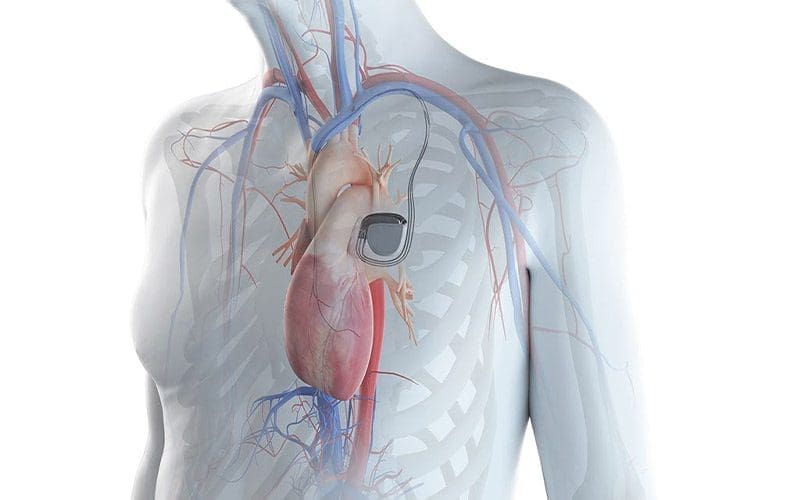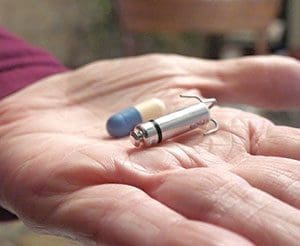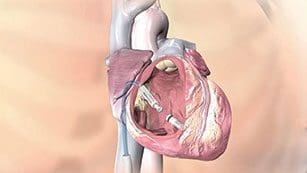
Published: February 19, 2020
Heart Health: Cardiac Devices
At the Avita Heart Cardiac Device Clinic, our team specializes in the implantation and long-term monitoring of your cardiac device. We use a variety of devices, including pacemakers, heart rhythm monitors, and implantable cardioverter defibrillators. In the following, we explain how we use cardiac devices, what these devices are, and answer frequently asked questions.
Why a Cardiac Device is Needed
Cardiac devices control irregularities caused by the heart’s electrical system, such as irregular heartbeat and heart rhythm disorders. When medication, lifestyle changes, or other treatments do not work, an implantable device may be recommended. Cardiac devices may remedy some heart conditions on a long-term basis.
Follow-up Care
After being implanted, our team will check your cardiac device regularly to ensure it’s working properly. For instance, we monitor your device’s battery status and review the stored cardiac information every three months after your initial appointment. In some cases, we can perform a check-up on your cardiac device from the comfort of your house using home monitoring equipment.
Types of Cardiac Devices
Pacemaker
A pacemaker is an electrically charged cardiac device that is surgically implanted under the skin of the chest to manage heart rhythm disorders. For example, they may be used to treat bradycardia, when the heart beats too slow, or arrhythmia, which is an irregular heartbeat. A pacemaker helps regulate the body’s electrical system to control the heart rhythm and maintain blood flow. Pacemakers are typically the size of a half dollar and contain a tiny computer, a battery, and 1-3 wire leads that produce electrical pulses to keep the heart beating at a normal rate.
Heart Rhythm Monitor
Commonly referred to as loop recorders, heart rhythm monitors continuously record your heart’s rhythm for up to 36 months. Heart rhythm monitors are smaller than a single AAA battery, and are surgically implanted just under the skin in the upper chest. They can help answer questions about heart abnormalities, such as heart palpitations, unexplained syncope (fainting spells), and certain types of irregular heartbeat that are undetectable on short-term heart rhythm recording devices. This information may help your cardiologist make a definite diagnosis and develop a treatment plan.
Implantable Cardioverter Defibrillator (ICD)
An ICD is a small, battery-powered device that monitors heart rhythm and detects irregular heartbeats. ICDs treat tachycardia, also known as a fast heartbeat, and help control your heart rate and pump blood efficiently. An ICD delivers electric shocks to the heart to fix abnormal heart rhythms that may lead to sudden cardiac arrest (when the heart stops beating). Our physicians implant ICDs under the skin of the chest and is connect them to the heart with tiny wire leads, similar to a pacemaker.


Frequently Asked Questions
Should I change anything in my daily routine after placement of my implantable cardiac device?
Most people with an implantable cardiac device can do their normal activities. However, have your physician check your incision and clear you before resuming normal activities.
Can I have an MRI?
Notify all healthcare providers of your implantable cardiac device. Once notified, your healthcare provider can determine if your device is compatible with MRI testing.
Can I go through metal detectors in the airport or government buildings?
Yes, but sometimes the cardiac device will trip the alarm. If this occurs, inform security of your cardiac device. Keep your device ID card with you for these situations.
Is someone monitoring my device 24 hours a day, 7 days a week?
No. The monitoring in your home is NOT like the monitoring done in the hospital. Our team interrogates the information from your cardiac device on prescheduled dates. If a home monitor is in place, the monitor will send any ‘alerts’ recorded to the device clinic staff the next time you are within 6 feet of your home monitor.
Home monitoring should never be a substitute for calling 911 or going to the nearest emergency department if you feel poorly.
How often should my cardiac device be interrogated?
You are required to come into the device clinic every 6 months for a device interrogation if no home monitor is in place for remote interrogations. Certain circumstances may require you be seen in the clinic more frequently than every 6 months.
If a home monitor is in place, your cardiac device will be followed with a remote interrogation every 3 months. However, you will still need to come into the device clinic to have your device interrogated once per year.
In conclusion, cardiac devices play an important role in many patients’ heart health care. If you have questions regarding these instructions, call the Avita Heart Cardiac Device Clinic at 419-462-4600 or 419-462-4610.